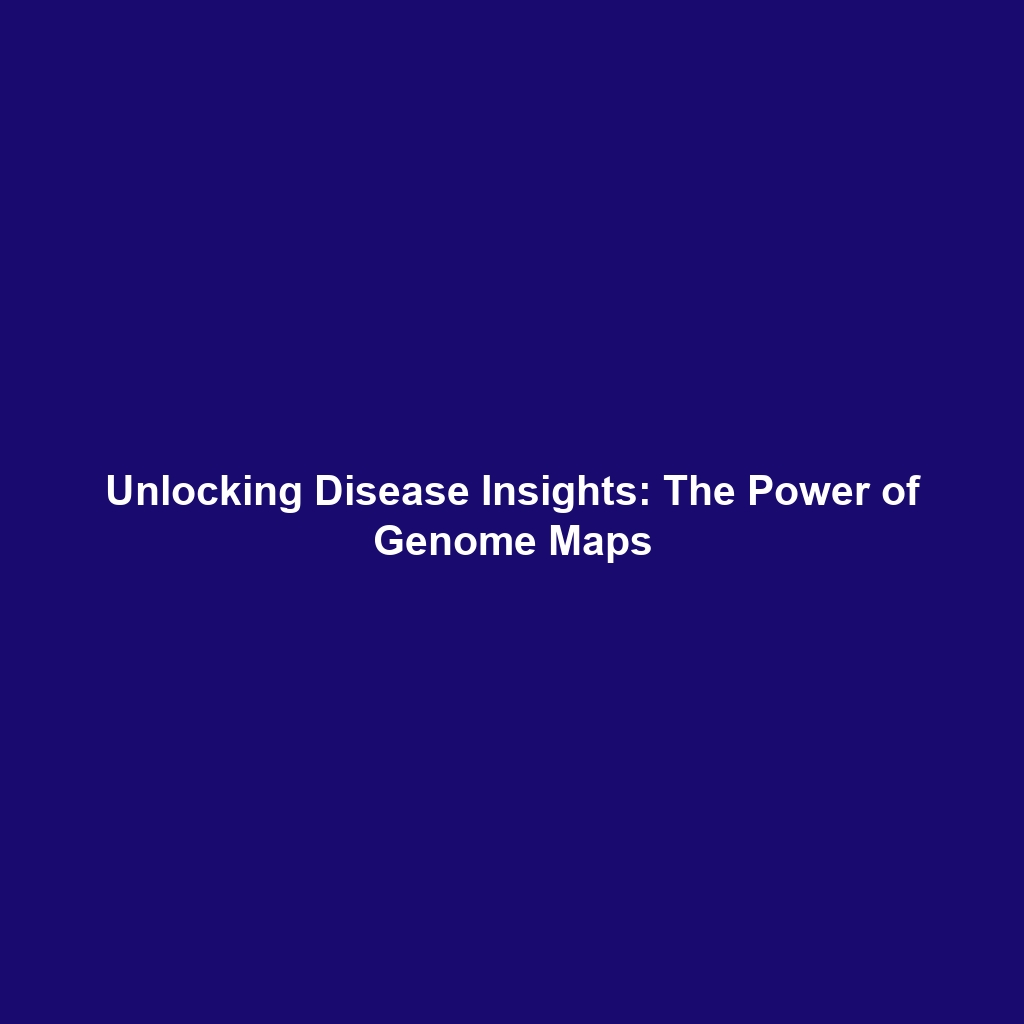Importance of Genome Maps for Understanding Gene Location, Function, and Disease Association
The mapping of the human genome has ushered in a transformative era in genetics, providing unprecedented insight into gene location, function, and associations with diseases. In the context of the Human Genome Project (HGP), genome maps serve as vital tools that deepen our understanding of genetic determinants underlying health and illness. This article delves into the significance of genome maps and their critical role in the continued exploration of human genetics.
Key Concepts of Genome Mapping
Genome maps are essentially blueprints of genes and their locations on chromosomes, essential for understanding the intricate relationships between genes and human disease. Within the framework of the Human Genome Project, several key concepts emerge:
- Gene Location: Identifying where specific genes are situated on chromosomes aids in pinpointing genetic regions associated with diseases.
- Gene Function: Understanding what the genes do and how they interact with one another is crucial for elucidating biological pathways.
- Disease Association: Genome maps facilitate the discovery of genetic variants linked to various diseases, helping in the development of targeted therapies.
Applications and Real-World Uses
The applications of genome maps in understanding gene location, function, and disease association are vast, particularly in the realm of the Human Genome Project. Here are some significant uses:
- Personalized Medicine: Genome mapping allows for the creation of tailored treatment plans based on an individual’s genetic makeup.
- Genetic Screening: Early identification of genetic predispositions to diseases through mapping assists in preventive healthcare.
- Drug Development: Understanding the genetic basis of diseases enables the development of new pharmaceuticals targeting specific genes.
Current Challenges
Despite the advances made through genome mapping, several challenges remain in its application and study:
- Data Complexity: The vast amount of data generated can be overwhelming, complicating analyses and interpretations.
- Ethical Implications: Issues relating to genetic privacy and the ethical use of genetic information persist.
- Integration of Data: Combining genomic data with other biological information remains a significant challenge in computational biology.
Future Research and Innovations
Looking towards the future, several innovative approaches are set to enhance our understanding of genome maps:
- Next-Generation Sequencing (NGS): NGS technologies are anticipated to reduce costs and increase speed in genome mapping.
- CRISPR Technology: Advances in genome editing will allow further exploration of gene functions and associations.
- Artificial Intelligence: AI is poised to transform data analysis, enabling more profound insights into genetic relationships and disease associations.
Conclusion
The importance of genome maps in understanding gene location, function, and disease association cannot be overstated. These maps not only enhance our knowledge stemming from the Human Genome Project but also pave the way for future innovations in genetics and medicine. As research continues, it is crucial for stakeholders in healthcare and scientific communities to maintain ethical standards and prioritize the integration of genomic insights into practical applications. For further reading on related topics, consider exploring our articles on personalized medicine and ethical implications in genetics.
